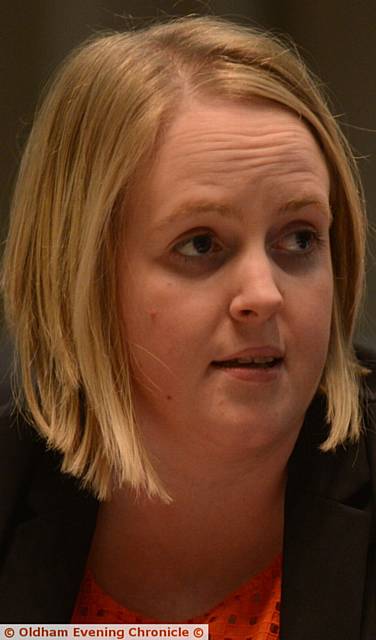Fines for time off school may return
Reporter: Karen Doherty
Date published: 07 April 2017

REVIEWING our position . . . Councillor Amanda Chadderton
OLDHAM Council is reviewing its position after the country's highest court upheld a ban on parents taking their children out of school to go on holiday.
Five Supreme Court justices unanimously upheld a fine imposed by Isle of Wight Council on Jon Platt who took his daughter to Disney World for five days during term time.
Oldham Council was among the local authorities which stopped fining parents for term-time breaks after Mr Platt successfully challenged his £60 fine last year.
But an appeal by the Isle of Wight council argued that a child's unauthorised absence from school "for even a single day, or even half a day" can amount to a criminal offence.
Priority
In response, Councillor Amanda Chadderton, Cabinet member for Education and Early Years, said: "In light of the ruling we are reviewing our position on this issue.
"Oldham Council is committed to improving educational and skills levels across the borough and that is why school attendance has to remain a priority.
"Any time out of school has the potential to damage a child's education. The council works with parents to ensure their children are in school during term time and do not take unauthorised time off. We expect all pupils to have an overall attendance record that is satisfactory."
Delivering the judgement Lady Hale, deputy president of the supreme court, said: "Unauthorised absences have a disruptive effect, not only on the education of the individual child but also on the work of other pupils.
"If one pupil can be taken out whenever it suits the parent, then so can others. Any educational system expects people to keep to the rules. Not to do so is unfair to those parents who do keep to the rules, whatever the costs or inconvenience."
The judgement clarified what "regular" attendance means after Mr Platt said that his daughter had good overall attendance of more than 92 per cent.
But the panel of judges said "regularly" means "in accordance with the rules prescribed by the school".
Speaking after the ruling, Mr Platt said: "To attend regularly no longer means to attend frequently, it now means to attend on all the days and at all the times that the school requires it.
"Every unauthorised absence, including being a minute late to school, is now a criminal offence."
Since September 2013, parents have had no entitlement to take their children on holiday during term-time - when prices are much cheaper.
The law makes it clear that head teachers may not grant holidays or other absences during term time unless there are "exceptional circumstances".
Oldham Council's guidance says these circumstances are things such as unique situations due to parents' work/employment commitments which have been verified by the employer, a trauma or bereavement in the immediate family or an opportunity for a holiday for a terminally ill immediate family member.
Holidays being cheaper during term time does not constitute an exceptional circumstance.
Absence
About one in six pupils in England took at least a half day off for a trip in 2015/16, with the vast majority doing so without permission from the head teacher.
Schools can request the local authority to issue a fixed penalty notice for unauthorised absence, which costs £60 per child per parent if paid within 21 days. There are no overall figures on the numbers of parents handed fines for taking children out of school, but figures previously obtained by the Press Association showed that in 2014/15, at least 50,414 penalty notices were issued due to children being taken out of lessons for trips.
Russell Hobby, general secretary of school leaders' union NAHT, said: "The system of fines is clearly too blunt an instrument and in many cases it drives a wedge between schools and families. The real problem is holiday pricing."
Most Viewed News Stories
- 1Milan Bar in Lees and The Bank at Delph close doors with immediate effect
- 2Latics announce retained list
- 3Attack on shop worker filmed and posted on Snapchat results in jail sentence for Oldham man
- 4Police searching for John's next of kin
- 5Suspect arrested on suspicion of attempted murder after firearms discharge in Glodwick




